Sentiment Analyses
Net Sentiment
The figures below show estimates of weekly Net Sentiment in recalled news about each candidate for all respondents, and then each of Democratic, Independent, and Republican respondents. The measure relies on the Lexicoder Sentiment Dictionary to capture positive and negative words. It is calculated by taking the percent of responses in which positive words outnumber negative words and subtracting the percent of responses in which negative words outnumber positive words. A score of -100 indicates that every response about the candidate is negative; a score of +100 indicates that every response about the candidate is positive; any score in between captures the percentage-point gap between positive and negative responses. Trends below are shown as 95% confidence intervals based on OLS regressions of individual-level sentiment as a function of time.
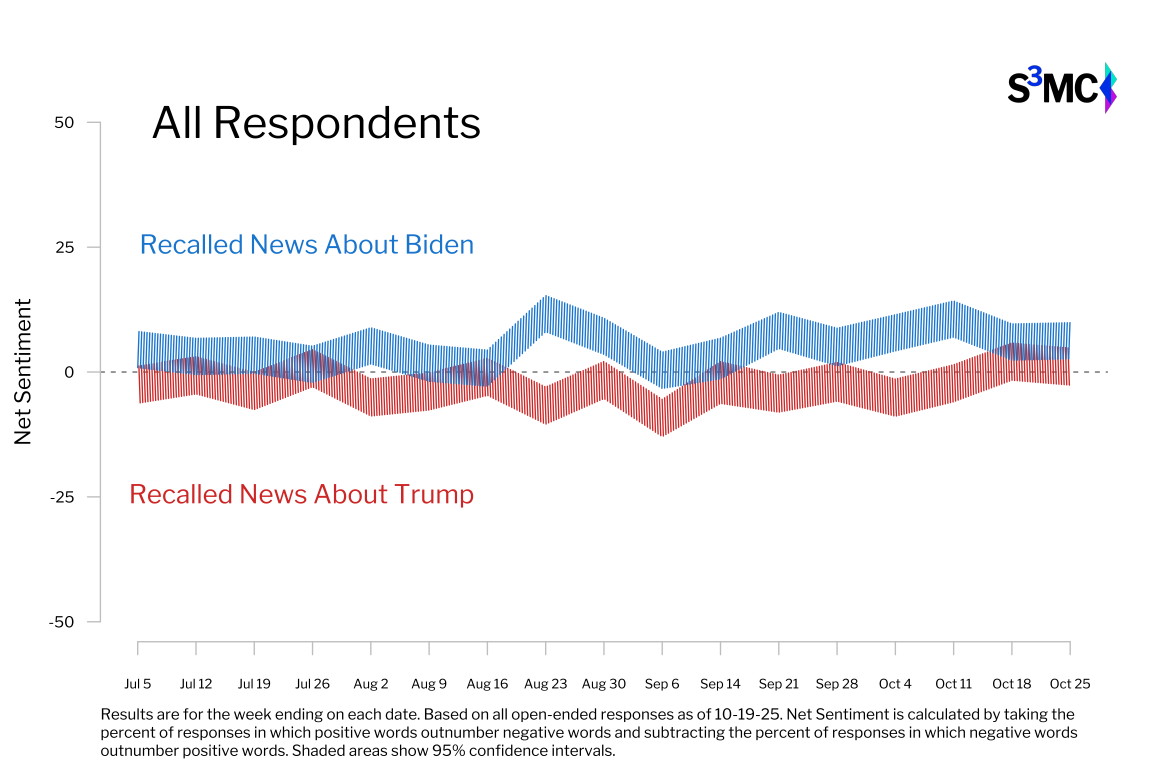
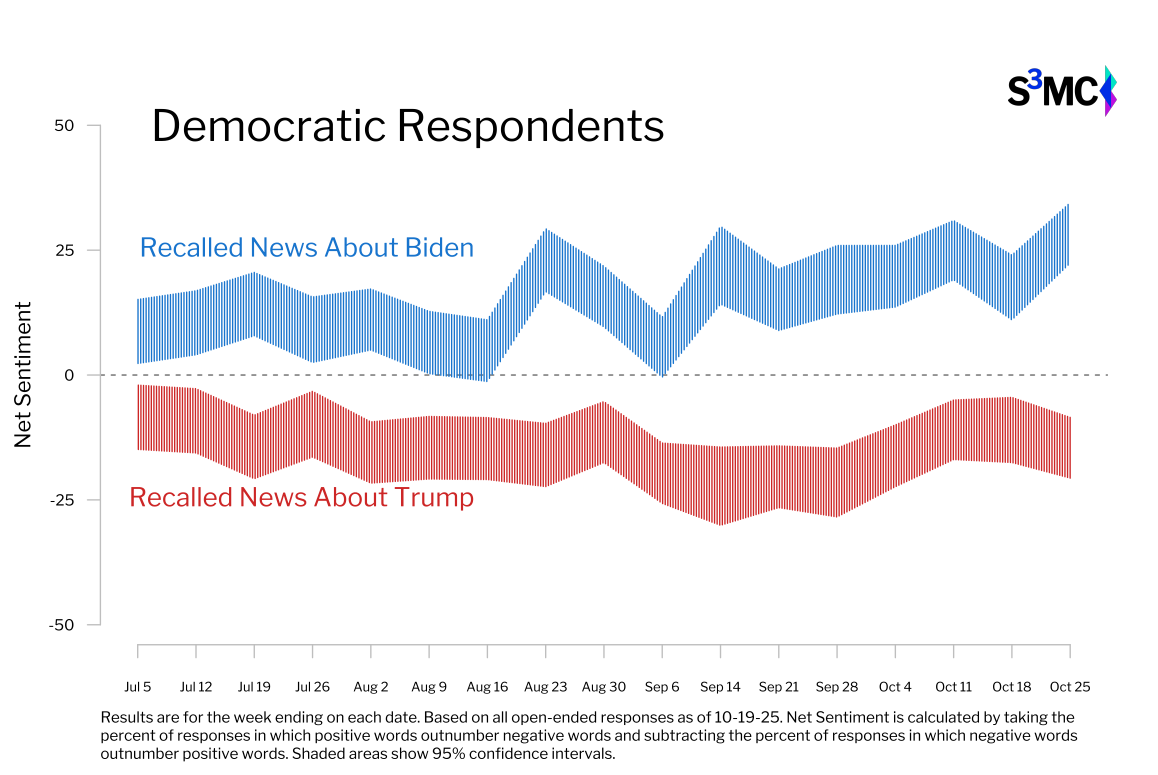
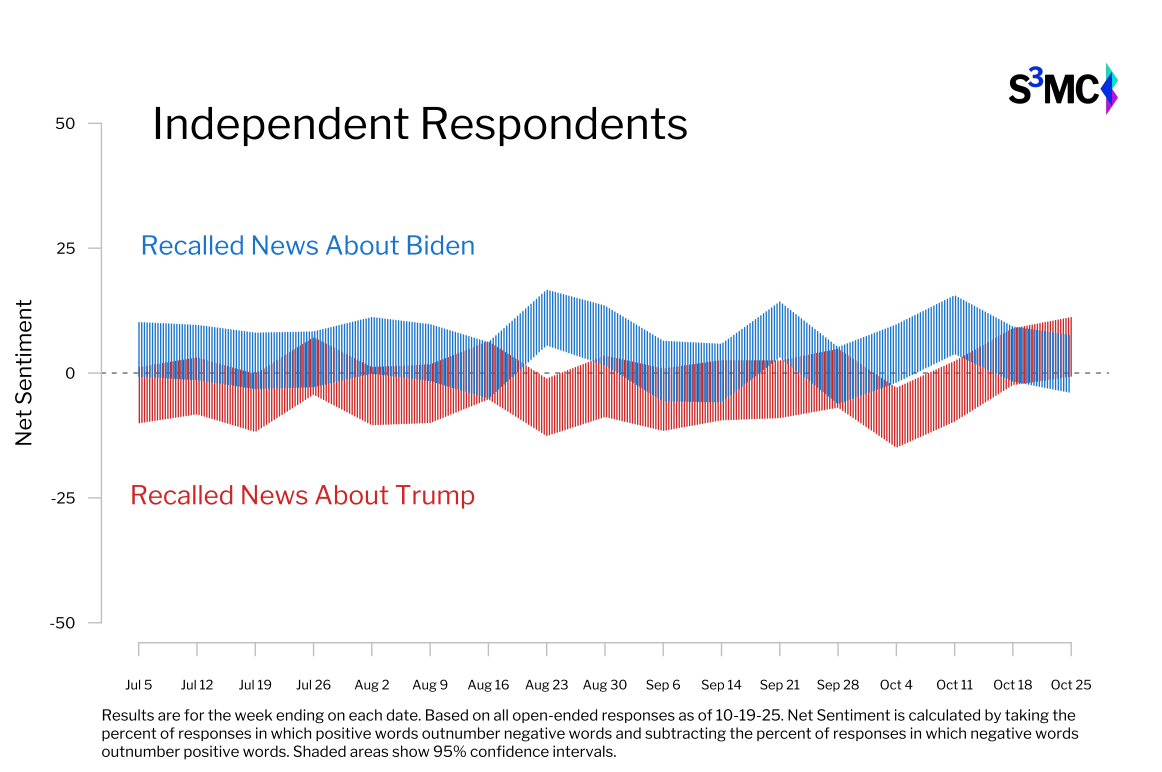
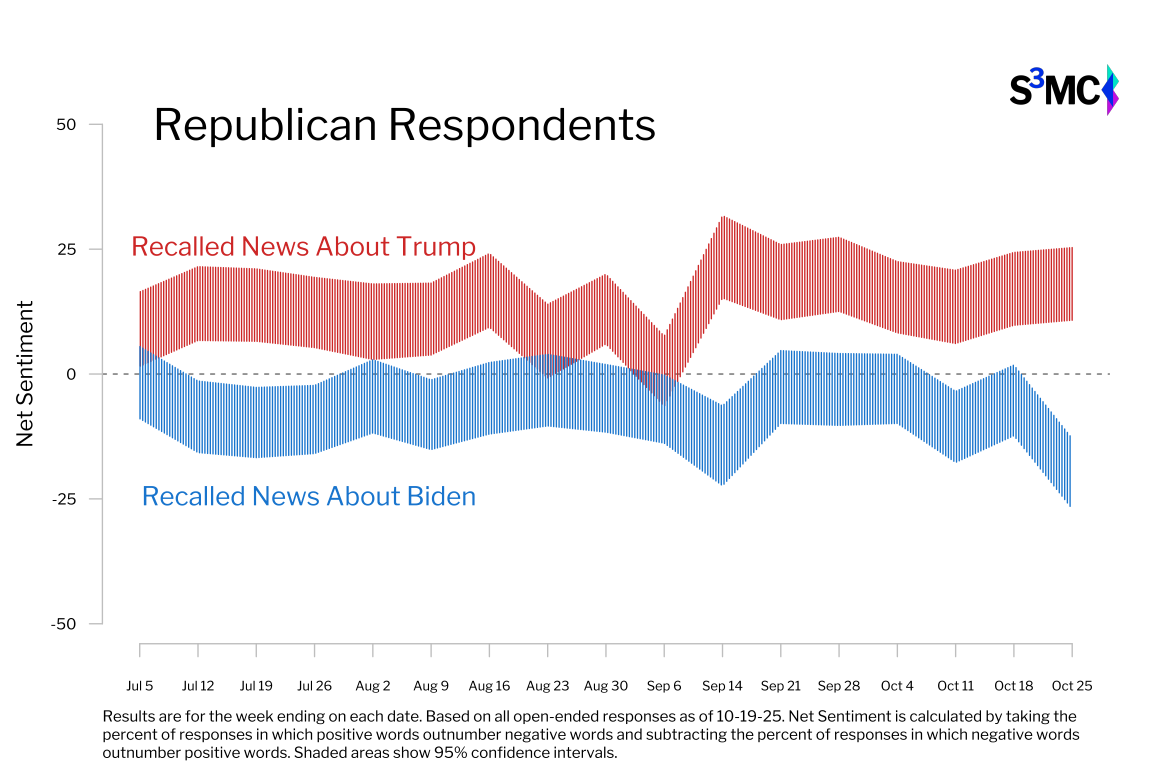
The Sentiment Impact Index
It is possible to capture the impact that individual topics are having on the Net Sentiment scores for each candidate: if we consider the subset of responses that focus on a given topic, we can estimate the sentiment of those responses alone, and their weight in the overall measure. This Sentiment Impact Index is based on the following formula: the proportion of mentions referencing a given topic × the average sentiment of those mentions. One of the topics that shifting the most this week in terms of both sentiment and salience was the military, which jumped to prominence following the story in the Atlantic about Trump’s comments about soldiers. The graphic that follows shows the Sentiment Impact Index for the military topic up to the week ending on September 6th, the week in which Trump made comments about soldiers being “losers” and “suckers.” The Sentiment Impact Index for military mentions in that week was roughly -6 — signaling a 6-point drop in Net Sentiment for Trump due to the military topic, controlling for other factors. Given that overall Net Sentiment for Trump dropped from -1.8 to -9.1 over the same week, the impact of the military story was equivalent to much of the decline in Net Sentiment for Trump that week.
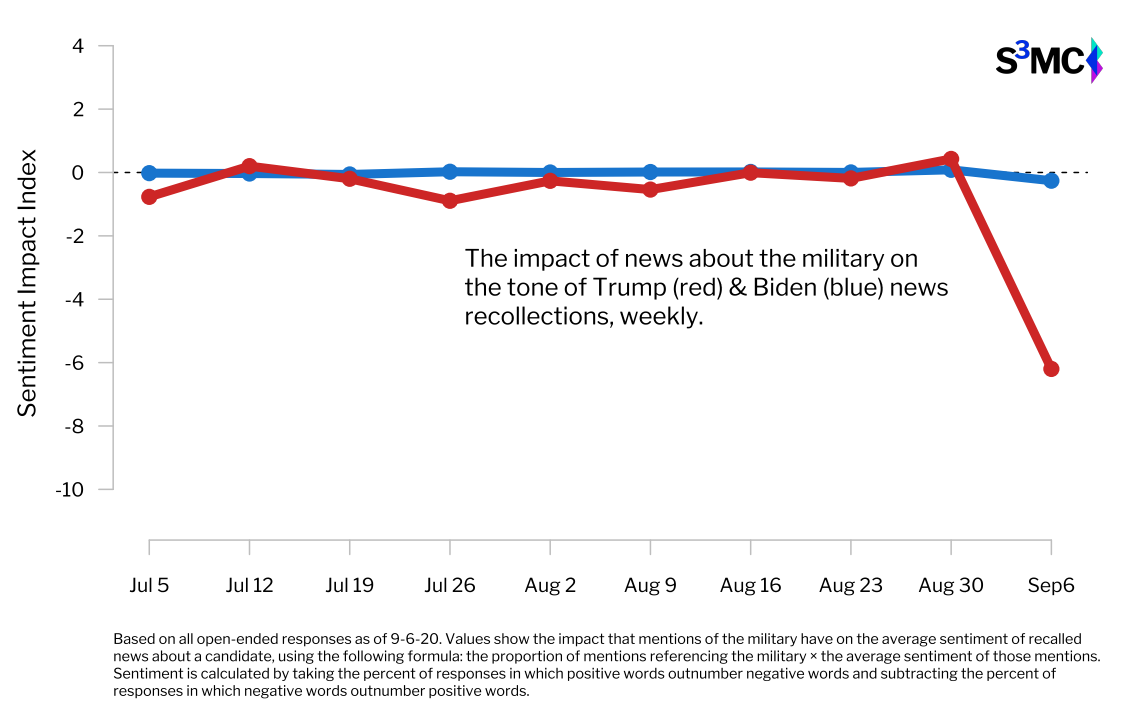
The graph below produces similar quantities, this time focused on the sentiment of Trump recollections from Democrats (blue), Republicans (red) and Independents (gray). The measure here is the Sentiment Impact Index for recalled information about Covid-19. Note that Covid-19 recollections have had a consistently negative impact on Trump sentiment for Democrats, but a neutral or positive impact on Trump sentiment for Republicans. In the week ending September 14th, the negative impact of Covid-19 content on Trump sentiment amongst Democrats increased sizably; but the impact of the same topic on Trump sentiment for Republicans moved in the other (positive) direction. This helps account for why news about Covid-19 has only a limited impact on support for Trump overall – Democrats and Republicans have rather different perceptions of the topic.
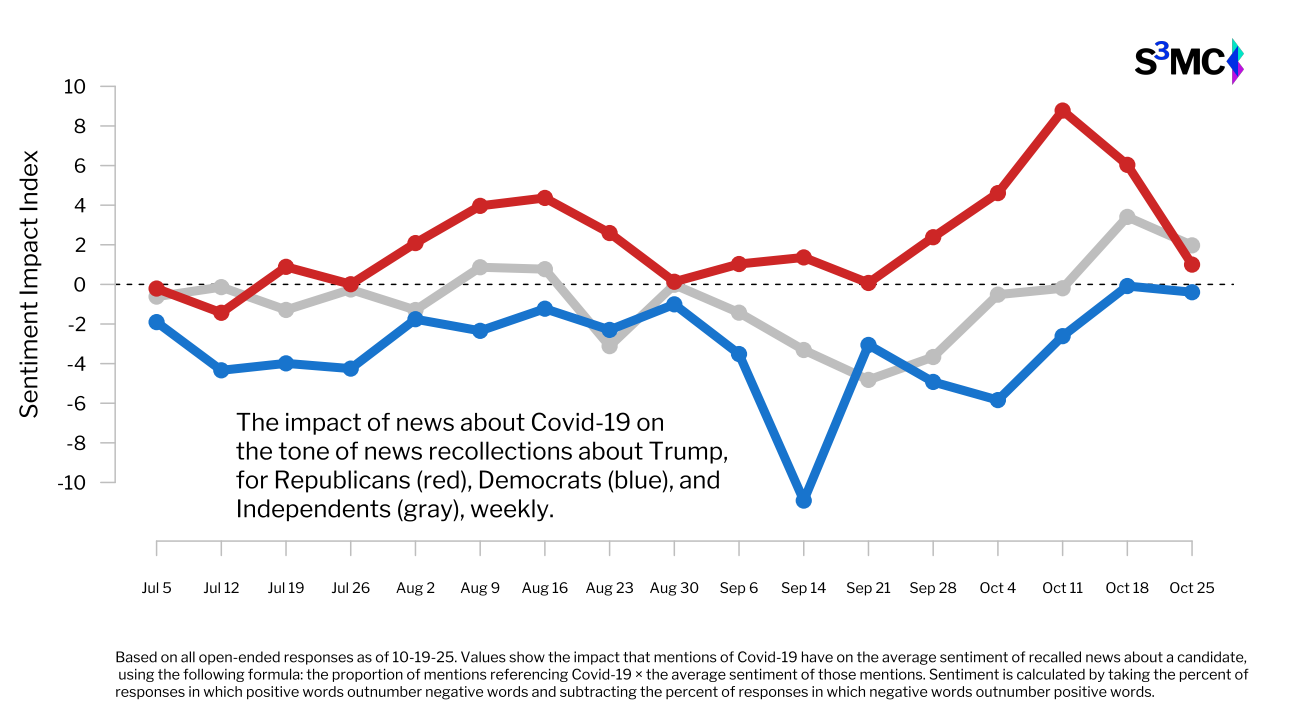
More information about the project methodology
The lead researcher on this specific analysis is Stuart Soroka from the University of Michigan. The research team conducting analysis of the results of this project are Lisa Singh and Jonathan Ladd from Georgetown University; Josh Pasek, Michael Traugott, Ceren Budak and Stuart Soroka from the University of Michigan; and Jennifer Agiesta and Grace Sparks from CNN.
